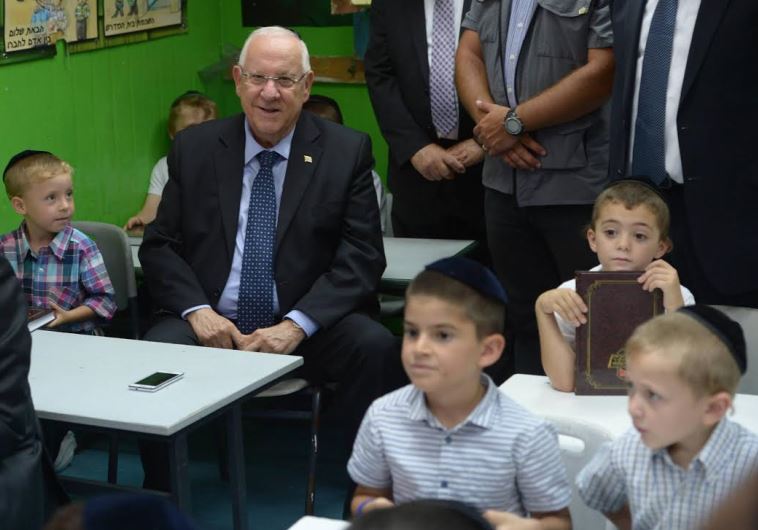Law revoking requirement for haredi schools to teach core curriculum expected to pass
"Perhaps half of haredi parents want children to have general education at elementary school level," says haredi high-school principal.
 Rivlin at Haredi school in Jerusalem, August 16, 2015(photo credit: AMOS BEN GERSHOM, GPO)Updated:
Rivlin at Haredi school in Jerusalem, August 16, 2015(photo credit: AMOS BEN GERSHOM, GPO)Updated: